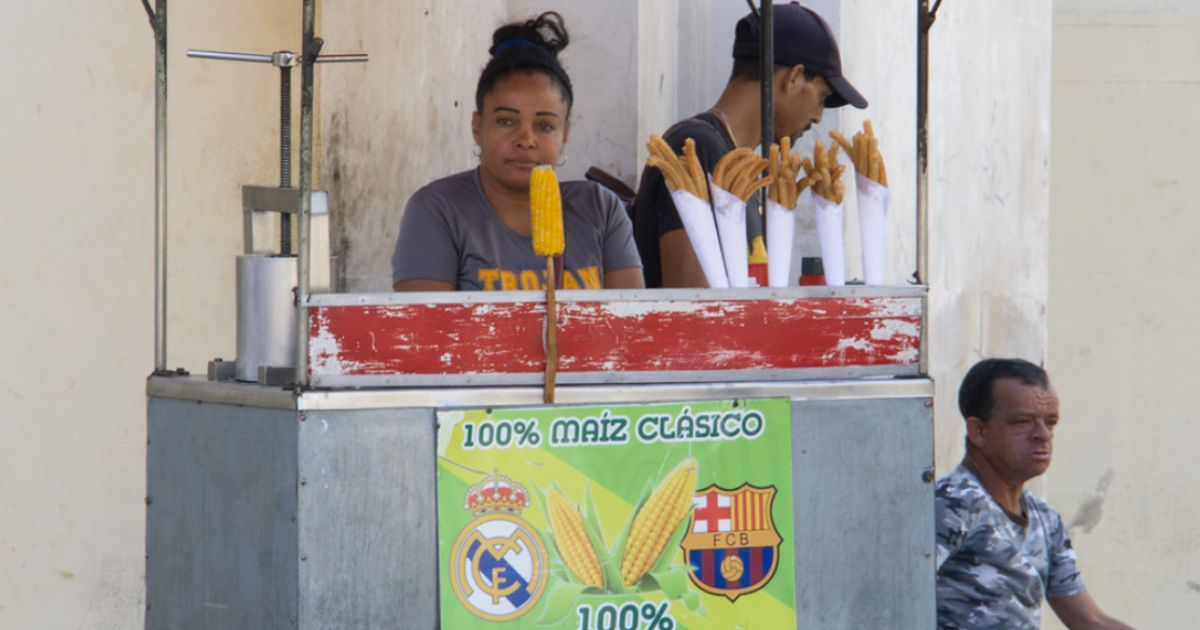Luis Mario Jerez Estrada, a resident of Bayamo in Granma province, recently turned to social media to share his experience of being fined 16,000 Cuban pesos for simply doing his job. Despite having all his documentation in order and paying taxes to the Cuban government, Jerez Estrada was penalized, leading him to voice his frustrations online. "It's a harsh reality when working is treated as a crime in our country," he shared on his Facebook profile, recounting the incident with officers from the National Revolutionary Police (PNR), who accused him of being "illegal" despite his proper paperwork.
The young man highlighted the ongoing harassment that self-employed individuals face, noting the irony that in Cuba, "it's seemingly more rewarding to commit crimes like theft than to work honestly." He also expressed concerns about potential repercussions for speaking out, such as having his phone confiscated, but felt compelled to make his story known. "I can't let this incident go unchallenged," he insisted.
His account mirrors the growing unrest among Cubans striving to make a living outside the state-controlled economy, amidst dire economic conditions characterized by inflation and limited job opportunities. The comments section of his post was filled with outrage and support, with many echoing similar sentiments.
Yordanis Perdomo Leyva commented, "This is the harsh reality we face every day, while officials criticize other countries without acknowledging our own issues." Adrián Zamora added, "People speak out, and the government labels them as dissenters, not realizing the real adversary is the government itself." Arletis Mojena emphasized, "This is the sad truth in Cuba, as the song goes, 'Cuba needs change, and it needs it now.'
The past few years have seen a surge in social media complaints about injustices in Cuba, often shared by ordinary citizens aiming to draw attention to critical situations. In 2024, a woman from Las Tunas reported her husband's arrest after he complained about power outages on Facebook. According to her, security agents attempted to coerce him into deleting the post, and the police later searched their home, detaining him.
Similarly, Sairis Castillo released a video challenging the official narrative that downplays the island's crisis. She cited power outages, food and medicine shortages, and the absence of political freedoms as valid reasons for public dissent. Her emotional testimony highlighted the daily struggles and survival mentality prevalent among Cubans.
Another poignant story that surfaced involved a young boy from Camagüey named Roelbis, nicknamed "Titingo," who sold tamales to assist his grandmother. His plight gained widespread sympathy after independent journalist José Luis Tan Estrada shared it online, prompting donations to relieve his burden of street work.
In October, anger erupted again when trucks carrying food from farmers in Santiago de Cuba were confiscated. Journalist Yosmany Mayeta Labrada's Facebook post about the incident sparked heated discussions about the lack of institutional support for Cuban agriculture. Many criticized the police's actions, emphasizing that while the people suffer from hunger, authorities hinder access to food.
Understanding the Challenges of Working in Cuba
Why was Luis Mario Jerez Estrada fined in Cuba?
Luis Mario Jerez Estrada was fined because the police accused him of working "illegally" despite having the necessary documentation and paying taxes to the government.
What challenges do self-employed individuals face in Cuba?
Self-employed workers in Cuba often encounter harassment from authorities, with accusations of illegal activity despite compliance with regulations, making it difficult to earn a living legitimately.
How have social media platforms been used to highlight injustices in Cuba?
Social media has become a vital tool for Cubans to share their experiences and bring attention to the challenges and injustices they face, often resulting in public support and calls for change.
